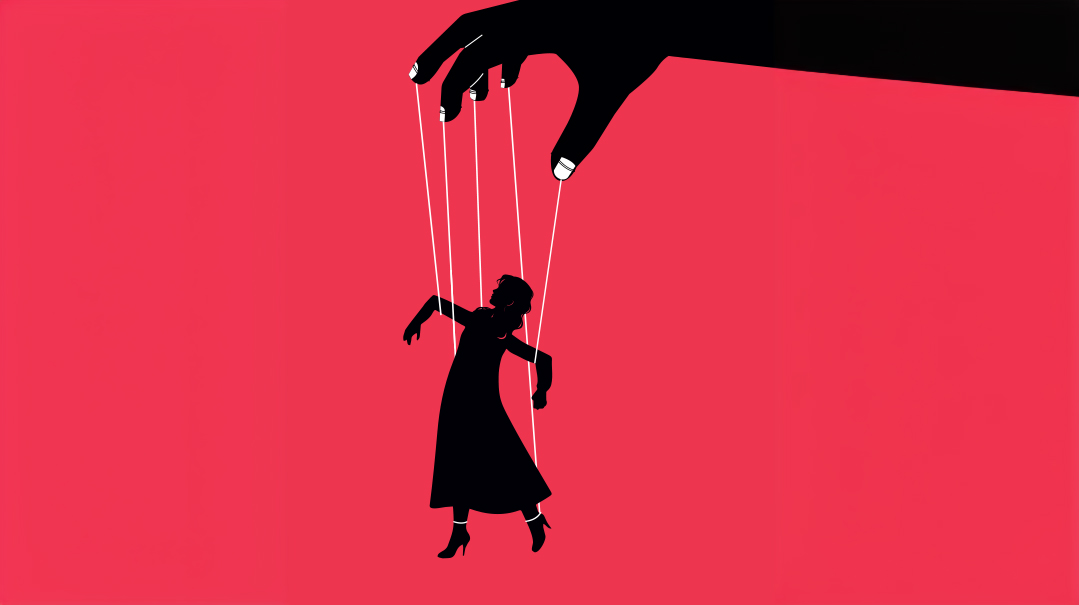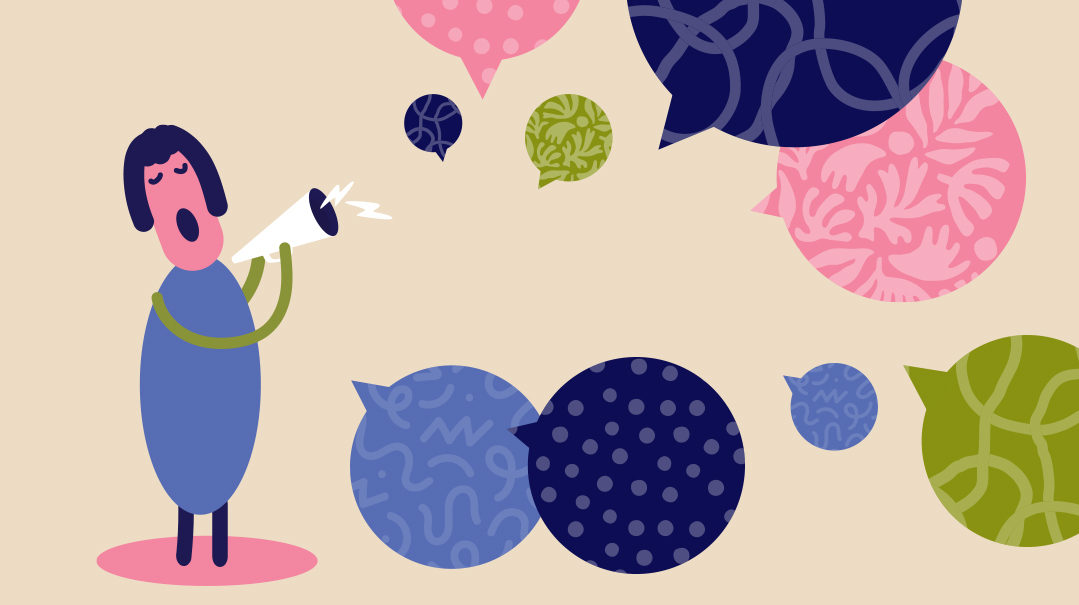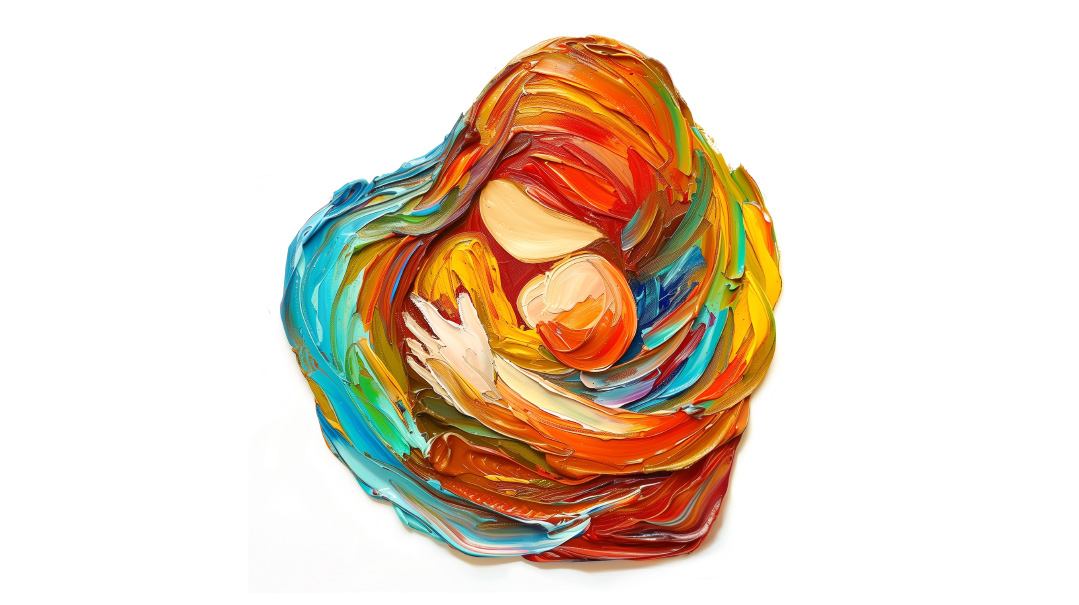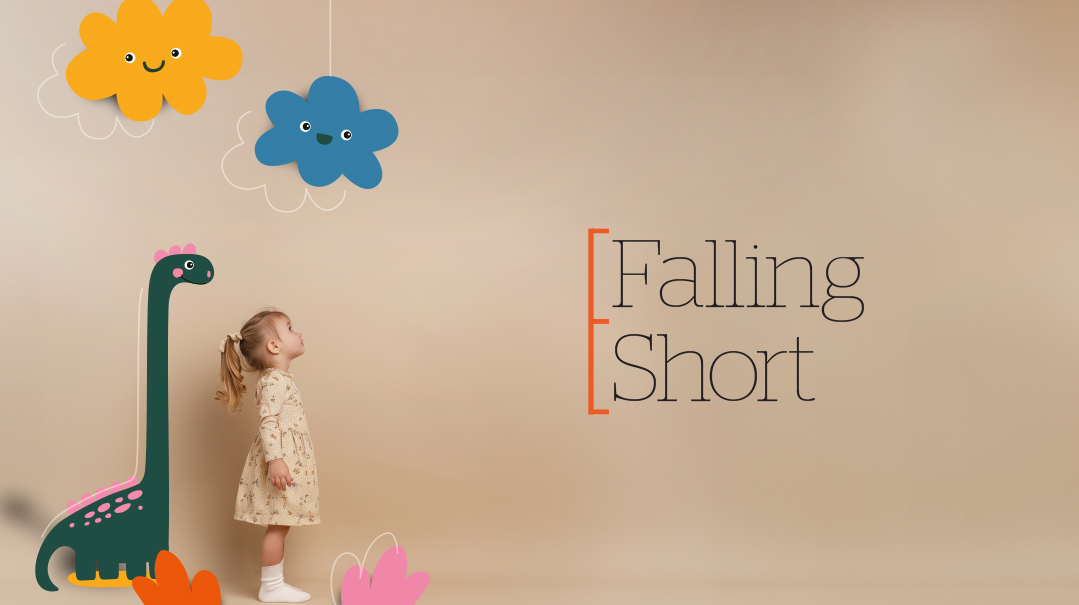Out of Control

If I loved my kids so much, why couldn't I control my temper?

We’ve broken much of the stigma around mental illness, addiction and abuse, but we have yet to speak about the explosive outbursts some mothers have at the little people they love most. An honest look at this painful phenomenon
“I have a story that needs to be told, and I don’t want to tell it. But that’s why I will,” Nechamie begins.
We’re sitting in the park, inside a wooden castle to protect ourselves from the Yerushalayim sun, its rays peeking through the slats, dappling our faces in gold.
“I have a problem. I have trouble controlling my anger at my children.
“You have to understand, I’m a normal person. Before all this started, I would have described myself as the ‘cool, calm, and collected’ type. I love my children, I’m a good mother 95 percent of the time, I’m successful at work, I have a great marriage, I’m active in my community.”
“My oldest child was eight months old when I experienced this the first time,” Nechamie continues. “I was expecting my second, so sick I could barely stand, barely function, and my hormones were all over the place. I was trying to change my baby’s diaper, and she was wriggling and struggling. I don’t know what happened, but all of a sudden it felt like too much, and I smacked her. She was shocked, and I was even more shocked. And then she began to wail.”
It wasn’t until she was expecting her third child, again suffering from debilitating nausea and extreme irritability, that Nechamie hit her again. She had a toddler, too, and he was clingy and kvetchy, and she began to hit him as well, in fury and frustration.
“I have a vivid memory of reading an article about a woman who used to hit her children, and she heard that there’s a sliver of a second between raising her arm and hitting, and that’s where she learned to take control,” Nechamie recounts.
“I kept trying to identify that tiny moment and catch myself, but it didn’t work. Try as I might, this rage would take over every fiber of my being, turning me into a monster in my own body. At the moment, I felt like a complete outsider to myself, hijacked by this powerful feeling.
“Right afterward, I’d feel this calmness, like there’d been tension released. And then I’d be overcome with remorse and self-hatred. How could I have just done something so terrible? What kind of evil person was I? How could I have hurt a child? My child, who I’m supposed to love and protect?”
Nechamie would promise herself that she’d never, ever do anything like that again. And that promise would last… for a day or two, and then again, the tension would build to unbearable proportions, and she’d explode.
Her husband had no idea what was going on.
“He worked long hours. And when he was home, he was a great, loving father, and I felt so much calmer because there was an extra pair of hands, another adult around to help me. It wasn’t like I was trying to hide my problem from him. It was that I didn’t have the problem when he was there,” Nechamie explains.
Once her third baby arrived, she was no longer nauseous and subject to the hormonal ups and downs of pregnancy, and she was doing somewhat better. But then, after discussion with a rav, she began taking a high dose of synthetic hormones.
That was a huge mistake.
A side effect of synthetic hormones is mood swings, and Nechamie felt these, full force.
“Now, even when my husband was around, I could no longer control myself. I realized then that I couldn’t deny it anymore. I had a major, major problem. And I needed to do something about it, quickly. I could see the fear in my kid’s eyes when I’d explode, could see the way they flinched when I raised my hand, and I knew that what I was doing was damaging them. It was time to come clean to my husband.”
Parental Rage
Michal Shnurr, a parenting instructor and chassidus teacher, as well as a mother herself, comments that, “In my experience, every mother has to contend to with feelings of anger toward her children, which can sometimes amplify into feelings of rage if not dealt with. Many women who come to my classes complain about it. One of them put it this way: ‘Before I had children, I was such a calm person. Now, I’ve discovered there’s a monster inside of me.’
“Being a mother is a challenging task,” Michal explains. “There’s the concept of tzaar gidul banim. It’s natural to experience anger in motherhood, as well as feelings of sadness, loneliness, and many other difficult emotions. You’re always on the job — it’s something that’s round the clock — and there’s your children’s lack of appreciation for everything you do for them. There’s also your powerlessness over the situation, there’s so much you’re not in control of. Before you were a mother, you got yourself ready and left the house for work. Now, you have to get a crying baby and an uncooperative toddler ready as well. It’s a huge shock, a huge challenge to adjust to. We don’t know what to do with ourselves.
“And that’s when anger steps up to the plate. It gives us an illusory sense of control, that we’re taking back the reins of our life. Anger usually is a secondary emotion; it sits on top of other deeper, more difficult emotions, like helplessness, fear, frustration, or something similar. That’s why we have to deal with much more anger when we have children. Motherhood amplifies these deep-seated emotions that we may have previously been unaware of.”
She adds that there are also other causes for anger in motherhood. Rav Kook ztz”l explains anger to be the explosion that occurs when our creative talents are restricted from being given expression. That frustration builds up and up — and then erupts. “I advise mothers to make sure to take time to do things that are fun, that are an outlet for their creativity,” Michal says.
“It’s important to differentiate between normal feelings of anger in parenting and expressions of out-of-control emotion that are damaging and require urgent intervention,” says Sarah Chana Radcliffe, M. Ed., C. Psych. When anger turns into rage, the parent’s emotions can cause lasting trauma and harm to their children, and it’s vital that the parent seek help in regulating his or her emotions. (See sidebar.)
Dr. Shmuel Harris, a psychiatrist in private practice, and director of the Machon Dvir Center for DBT therapy, sees anger in parenting as stemming from a difficulty in regulating emotions. He deals with a lot of new mothers from the frum English-speaking population in Jerusalem as they struggle to adjust to motherhood.
“In the last number of years,” Dr. Harris says, “I’ve been seeing more emotional dysregulation among young adults than I used to. Some of this comes from a very good place. There’s less stigma around turning to therapy, especially since Covid. There’s also an important sociological issue: With social media, the world young people face is more complex, fast-paced, and competitive than ever before. People spend so much time on social media, and, because of the public exposure involved, are more focused on externality and image, leaving less time and energy to develop and invest in their internal world. Thus, when they reach young adulthood, their skills for dealing with emotions are underdeveloped.
“They get married young and many move to Israel where they’re far from home, have minimal family support, and are navigating a new marriage, a pregnancy, and then a newborn. Not long after, they’re managing another pregnancy, then a toddler and a newborn. They’re doing this with limited ability to regulate their emotions, and they find themselves completely overwhelmed.
“Another significant factor is the impact of a lack of sleep on people’s ability to emotionally regulate. I can’t emphasize enough the importance of sleep on mental health, on our ability to cope with stress in the long term and short term. And the nature of motherhood is that it involves sleep deprivation. It’s not only amount of sleep that has an impact, but also quality of sleep and the times that you sleep. It’s essential that people prioritize going to sleep early and practice good sleep hygiene.”
Triggered
From inside the castle in the park, Nechamie continues her story. “One night, as my husband and I went on a walk along the boardwalk near where we live, I confided in him. I told him what had been going on. How much shame and guilt I’ve been carrying. How scared I was to tell a soul out of fear that my kids would be taken from me.
“He was so supportive. Of course, hitting isn’t justified and is never okay, but he accepted me and my struggle. We left the park with the conclusion: I must start therapy to get this under control.”
Nechamie immediately stopped taking the synthetic hormones and went to see a psychiatrist, who put her on an SSRI, a psychotropic medication often used in the treatment of explosive anger.
Within weeks, Nechamie’s outbursts disappeared. She felt calm all the time, and her children’s kvetching and neediness no longer raised her blood pressure, no longer aggravated her, no longer set her off.
At the same time, Nechamie began CBT therapy, which gave her tools for managing any potential flashes of rage. Afterward, she moved on to another therapist to try different therapeutic modalities.
“Understanding that my inner values of what was right and wrong, good and bad hadn’t changed just because sometimes I struggled with controlling my rage was a big relief. Labeling myself as a horrible, cruel person gave me no hope to continue. I found that genuinely holding compassion for my weaknesses enabled me to move forward.
“The therapist suggested I give my temper a name. I called him Mark. And I know that when he takes over, it’s almost impossible to stop him. But I know that it’s my job to make sure he stays quiet. Together, the therapist and I tried to work out what triggers him.
“I noticed there’s some sensory issues involved. For example, I can’t bear the sound of the rustling of disposable plastic tablecloths, so we stopped using those at the Shabbos table. If my son threw something, or something fell, the noise and shock of it would make me erupt like a volcano. I started doing Somatic Experiencing, a therapy that treats trauma by teaching you to calm your internal sensations of stress, to deal with that. It tunes me into my body, my senses, and my nervous system. This has been life-changing.
“Then the therapist and I went deeper into childhood traumas I prefer not to talk about.”
Nechamie acknowledges she’d had a number of toxic friendships in her teen years where she’d befriended girls going through personal crises, and they’d become overly dependent on her. This isn’t uncommon among people who’ve experienced childhood trauma. Her friends’ neediness had been a huge burden on her, but she couldn’t escape the feeling that she must help them and not let them down.
“I realized that I’d been losing it with my younger kids more than with my older ones because they’re so much needier and demanding. I guess there’s a survival mechanism inside of me that gets triggered when I sense my kid’s neediness, and I feel threatened, and explode.”
For a few years, Nechamie was calm, very calm, and while she felt that she’d lost some of her sparkle, some of her personality, because of the SSRI she was taking, for a long time, that price seemed worth it.
“I really felt that the medication had suppressed parts of my personality and my ability to be creative, fun, and silly. A few friends and family members who had no idea I was taking medication had made comments that I wasn’t as lively as I used to be.”
With the guidance of her psychiatrist, Nechamie slowly, slowly weaned herself off the SSRI she’d been taking for several years already. “At first I was on a high. I felt amazing. And then I crashed. All the emotions that had been dulled engulfed me.
“And I felt the rage again.”
Skills and Pills
“I’m a believer in skills before pills. Taking psychotropic medication is a more immediately accessible, external way to deal with a problem, without having to call upon our internal resources to cope,” says Dr. Harris. “But,” he adds, “there are no absolutes. One of my mentors says, ‘To every rule there is an exception, except for this rule: everything in proportion.’ Every situation and every person is different. For some people, medication is very necessary. They’re not in a place where they can access or develop their skills, or the situation they’re in needs to be dealt with urgently, and there isn’t time for them to develop the resources to resolve it. Usually, in these situations, I recommend both medication and therapy.”
Says Beryl Tritel, an experienced family therapist servicing the English-speaking community in Ramat Beit Shemesh, “Medication will help alleviate any chemical imbalances, but habits need to be changed in therapy.”
“When we think of problems with anger, we tend to look at it and ourselves very critically,” says Michal Schnurr. “We know that Chazal say anger is akin to serving avodah zarah. We feel tremendous guilt when we have angry outbursts, which makes us feel even more helpless and powerless, and thus even angrier, to extreme proportions.
“Rebbe Nachman of Breslov has an approach to dealing with anger that seems counterintuitive; he says that the way to diffuse is it is with compassion, ka’as mefirim b’rachmanus. He bases this idea on a pasuk in Chavakkuk, which says, ‘b’rogez rachem tizkor, in anger you should remember to have mercy.’ The simple reading of this is to have compassion toward the person you’re angry at, to see the weakness that caused them to act in a way that made you angry. But there is a deeper meaning: you must also have compassion on yourself, to see your own emotional pain, which is bringing about your anger.
“Both the infuriating action of the other person, and our angry response stems from our misguided attempts to deal with our difficult underpinning emotions. The anger we feel is a way to escape those difficult feelings instead of taking a breath and giving ourselves the space to understand what’s really going on. We should embrace our feelings of anger and try to defuse the pain and distress fueling the anger. Gently, gently, with lots of compassion. And that puts out the fire.”
“Working on ourselves and improving our middos is about improving our self-control,” says Dr. Harris. “But it’s also about learning new skills, which will improve our emotional health, our behavior, our reactions, and how to prevent us from acting in ways that are damaging to ourselves and others.”
Take Nechamie’s decision not to take synthetic hormones again, no matter the practical complications. “Many women are prescribed these hormones postpartum and onward. The negative emotional side effects aren’t something many women are aware of. That’s something the medical establishment has only started acknowledging in the last decade. But I’ve heard it come up again and again, that people feel awful mood swings while taking them.”
The medical literature supports this. For example, a 2016 Dutch study of over a million women found that there was a 70 percent higher risk of depression among women who took these synthetic hormones than among those who didn’t.
“In my experience, women who are susceptible to emotional ups and down are particularly sensitive to the emotional side effects of synthetic hormones. They should carefully consider using these or even looking into non-hormonal alternatives,” says Dr. Harris.
Beryl Tritel sees this in her therapy practice. “There is a specific brand of hormone commonly prescribed in Israel. If I have a new client after birth who tells me that ‘she’s never felt so horrible, angry, sad, and dysfunctional before,’ I ask her if she’s taking that and encourage her to go back to her doctor and change her prescription. I find that 99 out of 100 times she feels better.”
Staying Strong
“Though at the time medication had been so necessary, and if I ever feel again that I’m harming my children, I’ll go back on it, it did take away the problem without me actually dealing with it. I realized that the only way to face this was to accept that this was part of me, though it felt like it was a monster overtaking me. A huge step of my recovery process was understanding that I can control the demon, and not the other way around,” Nechamie says.
When Nechamie felt the rage again, she went back into therapy. She also took a holistic approach to her problem, focusing on the practical side as well as the underlying emotional parts. “I worked on improving my eating and sleeping habits, on reducing my stress levels, and doing talk therapy and EFT. I hired cleaning help on a regular basis. Not because my house was very messy, and not because I didn’t have time to do it after the kids went to sleep. The fact that it needed to be done was weighing down on me.
“I cut down on white sugar and white flour. I realized coffee made me uptight, so I only drink coffee when I really need to. I take herbal supplements that help with relaxation, like ashwagandha, and I exercise regularly. I also try to make time for things I enjoy, like taking bubble baths and going out with friends or my sisters.
As Michal Shnurr explains to the mothers she guides in her parenting courses, “Motherhood is 24/7, and that leads to a buildup of frustration. Take time during the day for yourself, to release your frustrations and stress, be it through writing, through tefillah, whatever you need.”
Indeed, in the medical literature on the topic, many incidences of extremely angry outbursts were correlated with mothers having ignored or denied their needs for too long. Another study of mothers and their rage described participants who felt a sense of release of their bottled-up emotions following an episode of rage.
Says Nechamie, “My husband and I developed a system where when it gets too much with the kids, and I feel like I’m in sensory overload and am going to lose it at them, he’ll take over and I’ll go to my room to decompress.” That way she prevents herself from getting to a situation where she feels the need to fly off handle.
Making sure Mark stays quiet is a big job.”Nechamie admits. “Some days it’s a big struggle.” But she’s seeing tremendous progress.
We’re both quiet, lost in the enormity of what we’ve discussed.
“I’m sharing my story because I want women who struggle with this to know they’re not alone,” Nechamie tells me passionately. “I want them to know they shouldn’t hate themselves because of it, and that there’s help available and they really can overcome it, for their sake, and for the sake of their families.”
Nechamie can be contacted through Family First.
When Anger Becomes Rage
Sarah Chana Radcliffe, M. Ed., C. Psych.
Every parent gets frustrated from time to time, and people show their upset in different ways. Speaking sternly in a voice that sounds impatient or even exasperated is common and, while unpleasant, is generally harmless when used occasionally. Chronic irritation has a more negative effect as it may convey not only displeasure at the actions of a child, but also personal rejection.
Parents need to use tools and strategies to deal with their child’s inappropriate behavior rather than using their emotions. This is particularly important when parental emotions run high. A parent who throws objects, punches walls, hurls insults or hits his or her child in anger, not only terrifies the youngster but often causes lasting harm. When such a threatening display occurs on a regular basis there is a real risk of emotional harm to the child and also of harm to the parent-child relationship.
However, even occasional episodes of emotional dysregulation (once every six months for example) can cause trauma. Self-esteem, social behavior, academic behavior, spiritual development, and physical health can all be severely affected, more so depending on the frequency and intensity of episodes. Parents who are triggered in this fashion by the normal stresses of childrearing need help, as their behavior has nothing to do with educating and guiding children. Rather, it’s caused by characteristics of the adult’s own physiology and mental and emotional processes. Getting this help is essential for the safety and emotional well-being of both parent and child.
In some jurisdictions, hitting a child in anger is considered to be a mandated reporting issue, meaning that Family Services may be alerted even by strangers making casual observations of a child’s emotional or physical state. In addition to the harm that can be caused by parental aggression itself, the involvement of Family Services may bring further consequences to both parent and child. Family Services can literally save the life of an abused child, and this is why such organizations exist.
Out-of-control parents can both intentionally and completely accidentally physically injure their children. Once a parent has lost control — even for a brief moment — sudden movements of limbs and objects can also become out of control with disastrous results.
This is one reason that it is essential that those who lose control get the help they need to ensure that they permanently regain it. No one wants to be in the position of having weekly supervision in their home by government agencies, but even more so, no one should have to endure the experience of having their children removed from their home for their own protection.
(Originally featured in Family First, Issue 881)
Oops! We could not locate your form.







